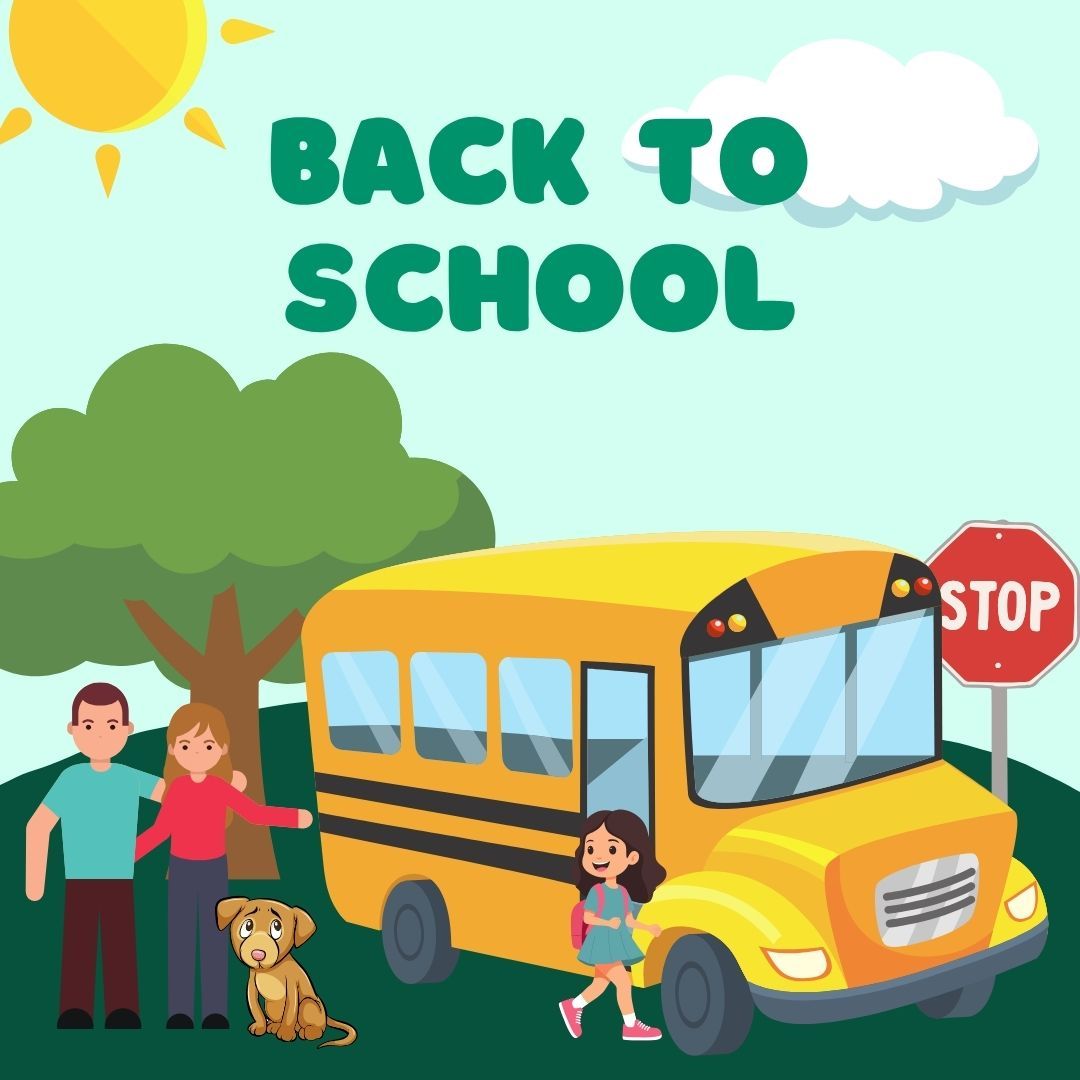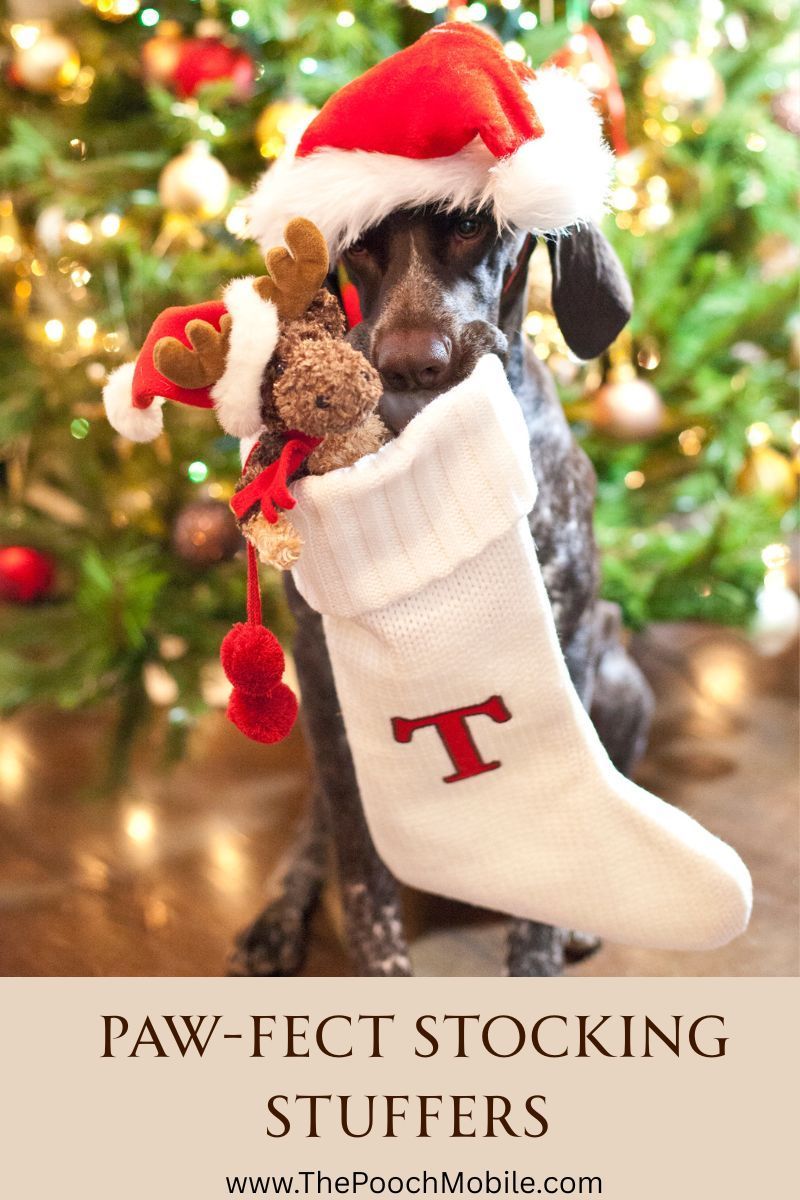
Paw-fect Stocking Stuffers for Dogs (That Aren’t Treats) 🎄🐾 When it comes to holiday gifts for dogs, treats are often the go-to—but they’re not always the best option. With busy schedules, visiting guests, and plenty of extra food around during the holidays, non-treat dog gifts can be a healthier and longer-lasting way to spoil your pup. If you’re looking for dog stocking stuffer ideas that support comfort, enrichment, and well-being, here are some fun, practical, and paw-approved gifts your dog will love—no extra calories required. 1. Grooming Tools for At-Home Maintenance A quality brush or comb makes a thoughtful and useful stocking stuffer, especially during winter when dog coats are more prone to tangling and shedding. Look for: Slicker brushes for fluffy or curly coats Rubber brushes for short-haired dogs Stainless steel combs for finishing touches Regular brushing helps keep your dog’s coat healthy and comfortable between professional grooming appointments. 2. Paw Balm for Winter Protection Cold weather, dry air, and rough surfaces can leave paws cracked and uncomfortable. Dog paw balm helps moisturize and protect paw pads during winter walks. Apply after outdoor time to keep paws soft, healthy, and irritation-free. 3. Cozy Dog Accessories Lightweight winter accessories make great holiday stocking stuffers for dogs, especially for short-haired or senior pups. Popular options include: Soft bandanas Warm but breathable dog socks Lightweight sweaters Choose items that allow full movement and are easy to remove if your dog gets warm. 4. Enrichment Toys for Mental Stimulation Interactive and enrichment toys are perfect for keeping dogs engaged during busy holiday days and colder weather. Great options include: Puzzle toys Snuffle mats Treat-free chew toys Fetch toys Mental stimulation helps reduce boredom, anxiety, and stress when routines change. Toy Safety Reminder: Always choose toys that match your dog’s size and chewing strength. Inspect toys regularly and replace them if they show signs of wear. 5. New Collar, Leash, or ID Tag A fresh collar or updated ID tag is both stylish and practical. The holidays are a great time to check that your dog’s identification is current—especially with guests coming and going. Choose durable materials and a comfortable fit to keep your dog safe year-round. Thoughtful Dog Gifts Go a Long Way The best dog gifts are the ones that support comfort, health, and happiness. Dog stocking stuffers don’t have to be big to make a difference, especially when they help your dog feel their best. At The Pooch Mobile, we provide one-on-one, stress-free mobile dog grooming right at your home—helping keep your dog clean, comfortable, and cared for all year long. 📅 Book your holiday or January grooming appointment early and start the new year off fresh. 👉 Book now or call your local Pooch Mobile operator today to give your best friend the love and attention they deserve! 📍 Serving neighborhoods near you! 📞 Call or click here to find your local operator to schedule your mobile wash now.
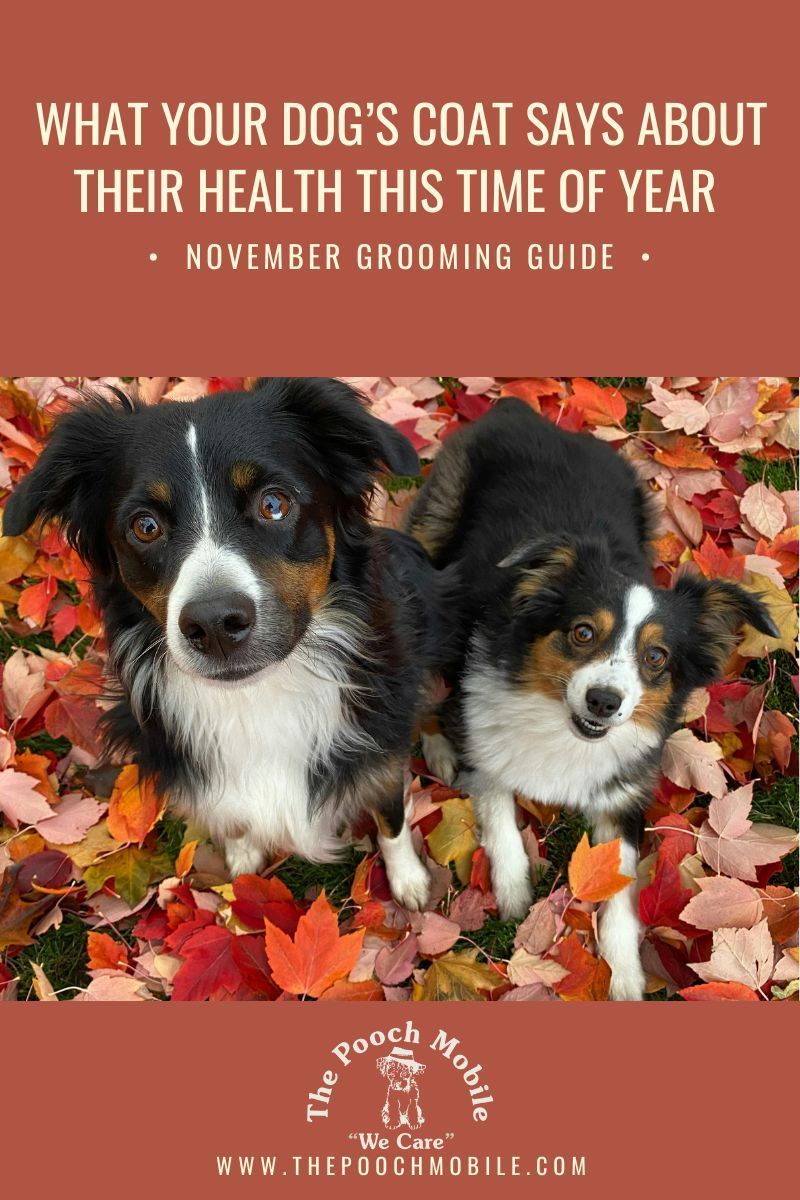
As fall temperatures drop and winter approaches, you may notice changes in your dog’s coat—more shedding, dryness, tangles, or dull fur. Many pet parents don’t realize that a dog’s coat is one of the best indicators of their overall health, especially during the seasonal transition from fall to winter. If you’re searching for November dog grooming tips or wondering whether your dog’s coat looks normal for this time of year, this guide will help you understand what your pup’s fur is telling you—and how The Pooch Mobile’s mobile dog grooming services can support year-round skin and coat health. 🍂 1. Excessive Shedding in Fall: What’s Normal and What’s Not Seasonal shedding is at its peak in November as dogs prepare for colder weather. However, excessive shedding can also signal: Poor nutrition or missing fatty acids Dry, irritated skin Allergies common in fall Lack of regular brushing or grooming Stress Underlying skin conditions A seasonal de-shedding treatment helps remove loose undercoat, reduces itching, and keeps your home cleaner. Professional brushing by a mobile groomer can also prevent mats from forming as coats thicken for winter. ✨ 2. Dull Coat in Fall: A Sign of Nutrition or Grooming Issues A shiny coat reflects good health. A dull, brittle, or flat coat may indicate: Dehydration Low-quality diet Stress Lack of routine brushing Dry fall weather Regular baths using moisturizing, eco-friendly dog shampoos, like those offered by The Pooch Mobile, restore softness and shine. This is especially important if you're noticing dry skin on your dog in November, which is extremely common. 🧶 3. Mats & Tangles: Why They Increase in November November weather brings damp leaves, moisture, and thicker coat, all of which contribute to matting. But mats aren’t just cosmetic; they can hide: Fleas or flea dirt Hot spots Irritated skin Bacterial infections A professional groomer can safely remove mats and recommend a maintenance schedule based on your dog’s breed and coat type. Regular grooming is essential for long-haired dogs in fall and winter. 🐾 4. Dry, Flaky Skin: A Common Fall Grooming Problem If your dog has dry skin, flakes, or itching in November, it’s often due to: Cool, dry air Indoor heating Seasonal allergies Infrequent baths Poor skin barrier health Using a gentle, hydrating shampoo and conditioner can greatly reduce flakes and irritation. A mobile dog grooming appointment is an easy way to give your dog the relief they need. 🐶 5. Oily or Greasy Coat: A Sign Your Dog Needs a Bath A greasy or smelly coat often means: Overactive oil glands Product buildup Too much time between baths Skin imbalance A proper bath with professional dog grooming products helps regulate oils without drying out the skin. 👀 6. Bald Spots or Patchy Fur: When to Pay Attention Excessive hair loss beyond normal shedding may be a sign of: Hot spots Allergies Parasites Stress Hormonal issues A groomer can spot early signs of skin problems and recommend veterinary care if needed. 🛁 What a Healthy Dog Coat Looks Like in November A healthy fall/winter coat should be: Soft and shiny Free of mats and tangles Well-moisturized Clean and odor-free Easy to brush Comfortable for your dog If your dog’s coat doesn’t look or feel like this, it may be time for seasonal grooming. 🚐 How The Pooch Mobile Helps Maintain Skin & Coat Health in Fall and Winter Booking a mobile dog grooming appointment in November supports your dog’s skin and coat through seasonal changes. The Pooch Mobile provides: Moisturizing, eco-friendly shampoos for dry fall skin Professional dog de-shedding Mat prevention and safe removal Gentle brushing and blowouts Nail trims (important for posture on slippery fall surfaces) All in your driveway—no stress, no travel, and no crowded grooming salons. 🐕 Keep Your Dog’s Coat Healthy All Season Long Your dog’s coat tells a story, and this time of year, it can reveal a lot about their overall health. Understanding seasonal coat changes can help you stay ahead of skin issues, shedding, and discomfort. Book your November dog grooming appointment with The Pooch Mobile today to keep your pup clean, comfortable, and healthy through fall and winter. 👉 Book now or call your local Pooch Mobile operator today to give your best friend the love and attention they deserve! 📍 Serving neighborhoods near you! 📞 Call or click here to find your local operator to schedule your mobile wash now.
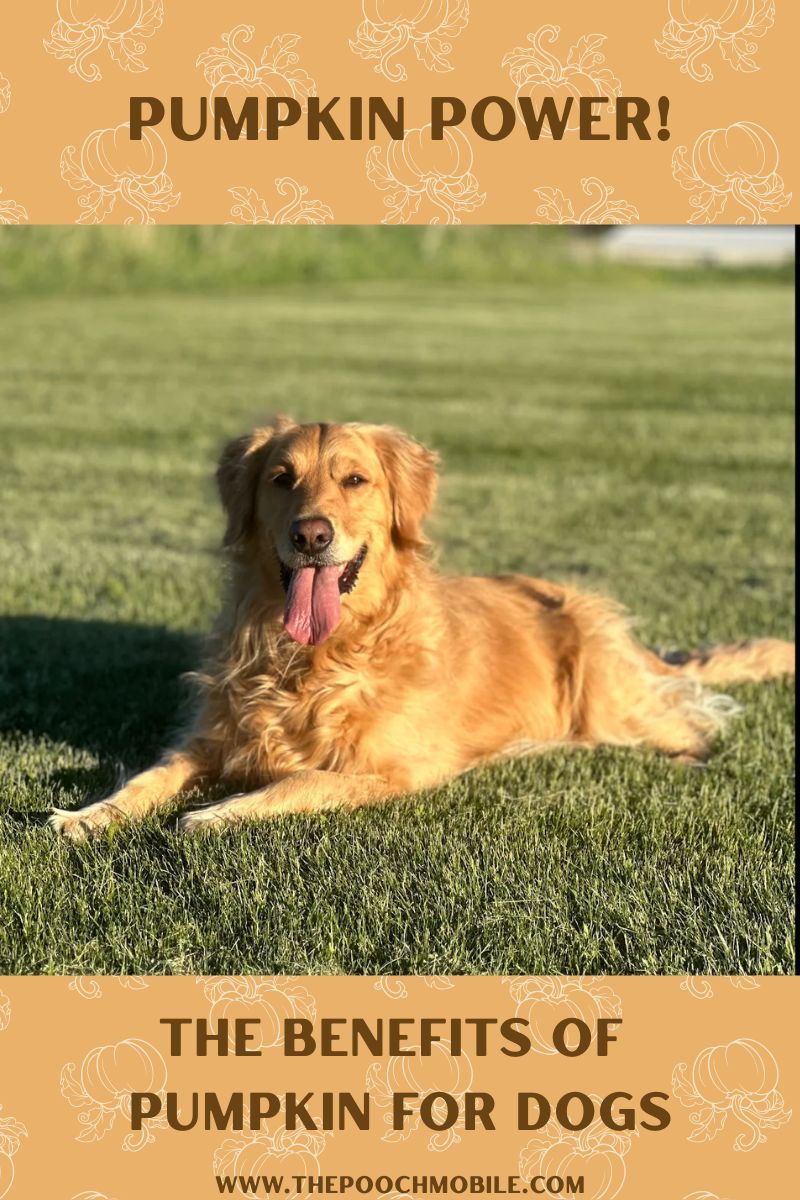
Pumpkin Power! The Benefits of Pumpkin for Dogs When autumn rolls around, everything seems to turn pumpkin-flavored — and while you might enjoy your pumpkin spice latte, your pup can enjoy pumpkin too! Pumpkin isn’t just a seasonal favorite; it’s a nutritional powerhouse for dogs. Whether fresh, canned, or baked into a treat, pumpkin offers plenty of health benefits that make it a great addition to your dog’s diet. Why Pumpkin Is Good for Dogs 1. A Natural Digestive Aid Pumpkin is packed with fiber, which helps regulate your dog’s digestive system. It can help ease both constipation and mild diarrhea — making it a great natural remedy for occasional tummy troubles. 2. Full of Vitamins and Nutrients Pumpkin is loaded with vitamin A, C, and E , plus important minerals like potassium and iron . These nutrients support your dog’s immune system, promote healthy vision, and help keep their skin and coat in top condition. 3. Low in Calories, Big in Flavor Pumpkin is low in calories and fat, so it’s a great way to add flavor and nutrition without overfeeding. It’s perfect for dogs watching their weight or for use as a healthy treat during training. 4. Great for Skin and Coat Health The beta-carotene and antioxidants in pumpkin support healthy skin and a shiny coat — especially helpful during the dry, cool months of fall and winter. 🐾 How to Safely Serve Pumpkin to Your Dog Use plain, canned pumpkin (not pumpkin pie mix, which contains added sugar and spices). Start small: 1–2 tablespoons for most medium-sized dogs is enough. Mix it in: Add pumpkin to your dog’s regular food or freeze spoonfuls in a silicone mold for a fun fall treat. If you’re ever unsure how much pumpkin your pup should have, check with your vet — especially for dogs with special dietary needs. 🍪 Easy Pumpkin Dog Treat Recipe Ingredients: 1 cup canned pumpkin 2 eggs 2 ½ cups whole wheat flour 1 tsp cinnamon (optional) Instructions: Preheat oven to 350°F. Mix pumpkin and eggs, then slowly add flour until a dough forms. Roll out and cut into fun shapes. Bake for 30–35 minutes or until crisp. Your pup will love these crunchy fall treats — and you’ll love knowing they’re healthy and homemade! ________________________________________________________________________________________________________________________________________________________________________ Ready for Grooming Made Easy? 🧼 Keep That Pumpkin Shine Going! Pumpkin supports healthy skin and coats from the inside, and The Pooch Mobile keeps them glowing on the outside! Our environmentally friendly shampoos and hydrobath system help maintain a soft, shiny coat all season long. 👉 Book now or call your local Pooch Mobile operator today to give your best friend the love and attention they deserve! 📍 Serving neighborhoods near you! 📞 Call or click here to find your local operator to schedule your mobile wash now.
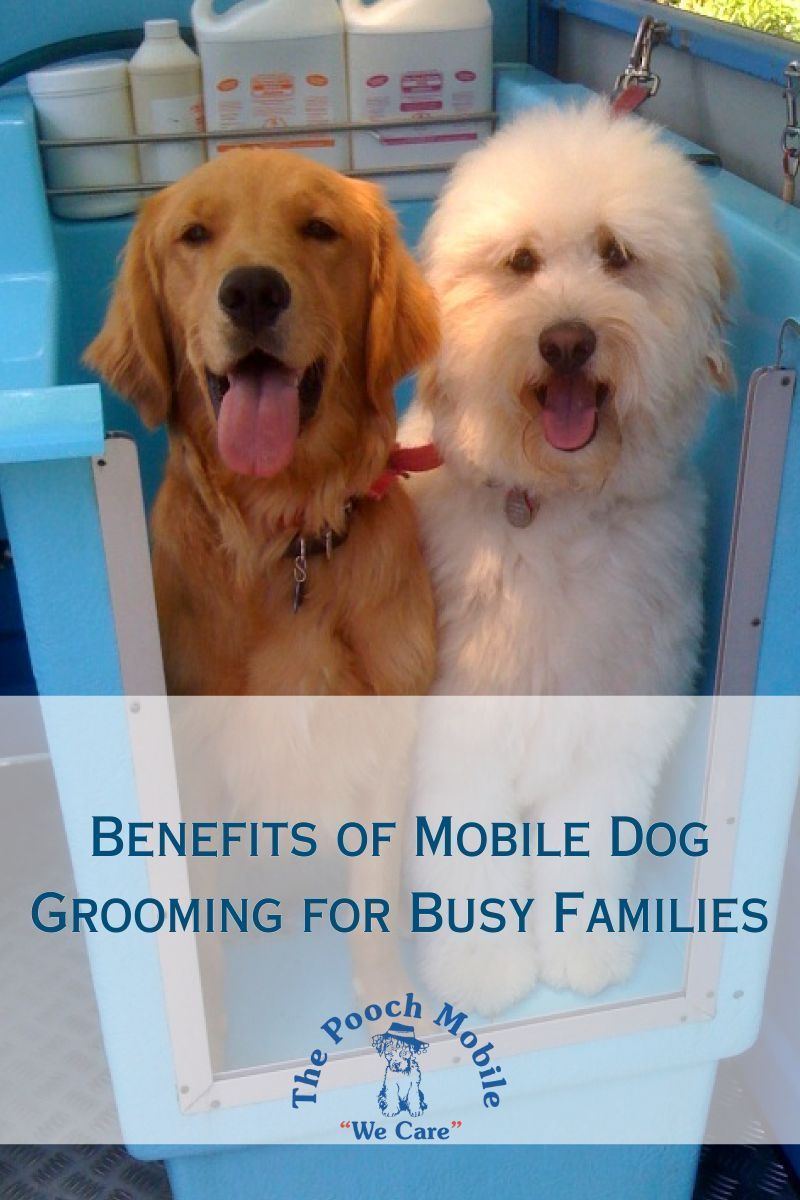
Life gets hectic—between work, family schedules, errands, and activities, it can feel like there’s never enough time in the day. That’s where mobile dog washing services like The Pooch Mobile come in! We make it easy to keep your pup clean, healthy, and happy without adding extra stress to your calendar. Here’s why more busy families are turning to mobile dog grooming as their go-to solution. 🐾 Convenience That Comes to You One of the biggest benefits of mobile dog grooming is convenience. No more loading your dog into the car, battling traffic, or waiting in crowded grooming salons. The Pooch Mobile comes straight to your driveway—saving you time and hassle while delivering professional grooming services. 🐾 Stress-Free Experience for Your Dog Many dogs experience anxiety at grooming salons due to unfamiliar environments and other animals. With mobile grooming, your dog gets one-on-one attention in a calm, quiet setting. This reduces stress and makes grooming a positive experience for your pet. 🐾 Safe, Sanitary, and Personalized Care Mobile dog washing offers a clean and sanitary environment, with no exposure to other pets or germs. Plus, your dog receives personalized care, tailored to their breed, coat type, and individual needs. At The Pooch Mobile, we take the time to ensure every pup looks and feels their best. 🐾 Flexible Scheduling for Your Busy Life With mobile grooming, you can book appointments around your schedule—before school drop-offs, during lunch breaks, or in between after-school activities. The Pooch Mobile offers flexible time slots, so you don’t have to rearrange your day to fit in a trip to the groomer. 🐾 Keep Your Dog Looking and Feeling Great, Year-Round Regular grooming keeps your dog’s coat healthy, reduces shedding, and prevents skin issues—without the inconvenience of salon visits. Whether it’s a quick bath or a de-shed service, The Pooch Mobile ensures your dog stays fresh and clean all year long. ___________________________________________________________________________________________________________________________________________________________________________ Ready for Grooming Made Easy? Book your pup’s next grooming appointment with The Pooch Mobile! Enjoy a hassle-free, professional dog wash right at your doorstep. Clean dog, happy family, no extra stress. 👉 Book now or call your local Pooch Mobile operator today to give your best friend the love and attention they deserve! 📍 Serving neighborhoods near you! 📞 Call or click here to find your local operator to schedule your mobile wash now.

Summer is a season of adventure for dogs—whether it’s long walks, trips to the lake, or backyard playtime. But hot weather can also bring skin irritations , itchiness , and painful hot spots if dogs aren’t bathed regularly. That’s where a mobile dog wash makes all the difference. At The Pooch Mobile , our mobile dog wash service uses specially designed grooming products to keep your dog’s skin clean, hydrated, and healthy—without the hassle of salon trips. Here’s why regular baths are a must for summer skin care and how our service keeps your pup happy and comfortable. 🐶 Why Do Dogs Get Skin Irritations in Summer? Summer heat and outdoor activities expose your dog to several irritants: Heat and humidity lead to sweat buildup, especially in paws and undercoats. Pollen, dirt, and grass cling to your dog’s coat, making skin itchy. Swimming in pools or lakes can cause dry skin and even bacterial infections. Fleas and ticks thrive in warm months, causing inflammation and scratching. When dogs aren’t bathed regularly, these irritants can cause skin problems or develop into hot spots —painful, raw patches that require treatment. 🛁 How Regular Mobile Dog Wash Services Prevent Skin Problems With consistent grooming, your dog’s skin stays healthier and more comfortable during the summer months. A mobile dog wash : Washes away allergens, dirt, and bacteria , reducing itching and irritation. Prevents matting that traps moisture and causes skin infections. Keeps your dog’s coat fresh and cool , helping with body temperature regulation. Reduces flea and tick problems by maintaining a clean coat that’s easy to inspect. Choosing a mobile dog wash like The Pooch Mobile means you don’t have to struggle with baths at home or stressful trips to a grooming salon. At The Pooch Mobile, our mobile dog wash service includes premium, vet-approved products made for sensitive skin: pH-balanced shampoos gently clean without drying the skin. Oatmeal and herbal formulas relieve itchiness and soothe hot, irritated skin. Moisturizing conditioners prevent dryness and leave coats soft and shiny. Optional flea and tick rinses provide added protection during peak pest season. Every wash is customized to your dog’s specific coat type and seasonal needs, ensuring a safe and relaxing grooming experience right at your doorstep. 🌞 How Often Should Your Dog Get a Mobile Dog Wash in Summer? During summer, most dogs benefit from a mobile dog wash every 2-4 weeks . Dogs who swim often or spend lots of time outdoors may need more frequent grooming to avoid buildup, tangles, and skin irritation. With The Pooch Mobile’s mobile dog wash , it’s easy to stay on top of your dog’s grooming routine without leaving home. You book, we come to you, and your pup gets a refreshing, professional wash without any hassle. 🐾 Give Your Dog the Gift of Comfort and Cleanliness Don’t let summer skin irritations get in the way of fun. With The Pooch Mobile’s mobile dog wash services and specially designed products, your dog can enjoy summer feeling clean, cool, and itch-free. 📅 Book your dog’s next mobile dog wash today—appointments fill fast during end of summer! 📍 Serving neighborhoods near you! 📞 Call or click here to find your local operator to schedule your mobile wash now.
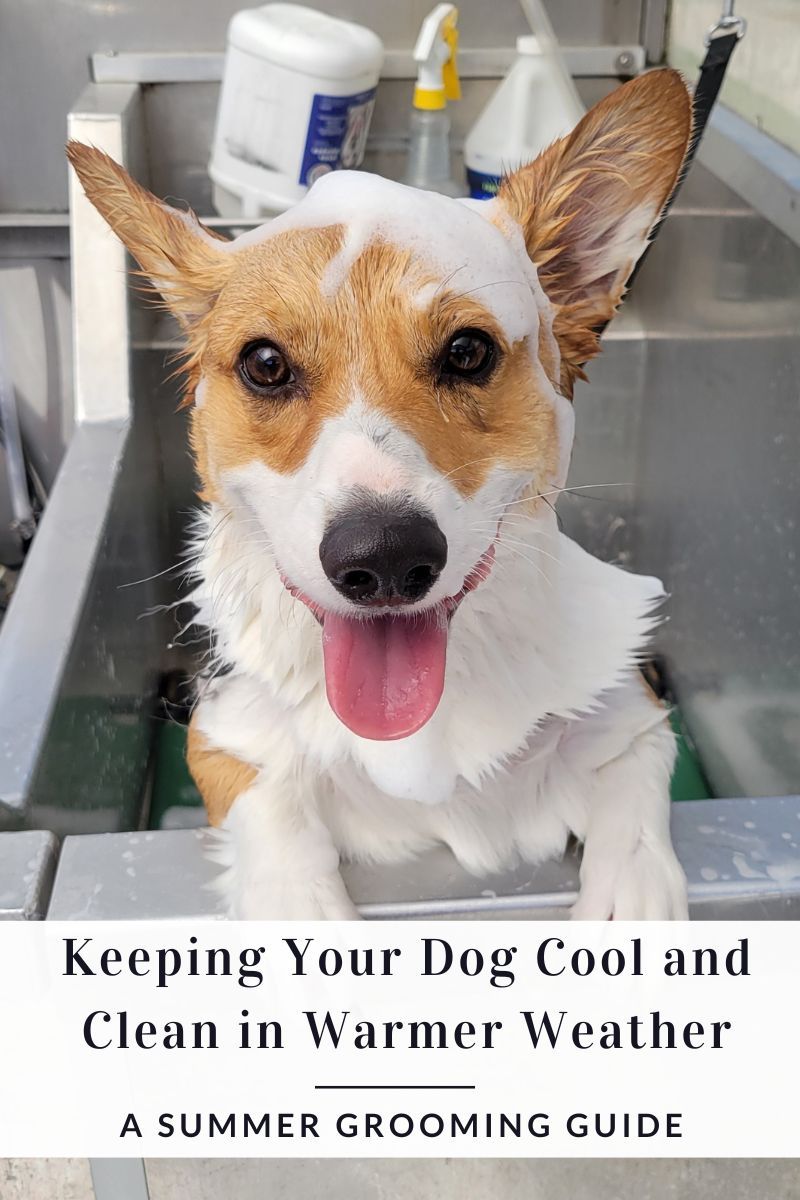
Keeping Your Dog Cool and Clean in Warmer Weather: A Summer Grooming Guide As summer heats up, it’s not just humans who feel the burn—our furry companions do too! Dogs can easily become overheated, uncomfortable, or even injured during hot weather. At The Pooch Mobile , we believe that regular grooming isn’t just about keeping your dog looking great—it’s about keeping them cool, comfortable, and safe all summer long. Here’s your go-to guide for summer grooming and warm weather care, with practical tips you can use right away: 🛁 1. Summer Grooming Keeps Dogs Cool Many pet parents assume shaving their dog is the best way to help them beat the heat—but that’s not always true! Dogs' coats are designed to insulate against both heat and cold. Instead of shaving, regular brushing and bathing are key. Removing excess fur, mats, and dirt improves air circulation near the skin, which helps your pup regulate body temperature naturally. 💡 The Pooch Mobile Tip : Our professional groomers know how to manage different coat types safely. We’ll trim where needed and keep coats clean, fresh, and free of debris that traps heat. 🐾 2. Protecting Paws on Hot Pavement Did you know pavement can reach up to 145°F on a sunny summer day? That’s hot enough to burn your dog’s paw pads in just seconds. 🚶♀️ What You Can Do : Walk your dog early in the morning or after sunset. Test the pavement with your hand—if it’s too hot for you, it’s too hot for paws. Use dog booties or paw wax for added protection. Inspect paws regularly for cracks, burns, or irritation. 💡 The Pooch Mobile Tip : We include a paw check with every wash. We’ll rinse off irritants, trim overgrown fur between toes, and alert you to any signs of heat stress or injury. 💦 3. Hydration: More Important Than You Think Dogs can’t sweat like we do. They cool down by panting and drinking water. That means hydration is crucial —especially in the summer. 🚰 Keep Your Dog Hydrated : Always have fresh, cool water available. Add ice cubes to bowls for longer outings. Bring a collapsible water bowl on walks or car rides. 💡 The Pooch Mobile Tip : After a mobile dog wash, your dog is refreshed from the outside in—and many of our pups love a cool drink and a cuddle in the shade post-wash! 🌿 4. Look Out for Seasonal Allergies & Skin Irritations Summer grasses, pollen, and insects can wreak havoc on your dog’s skin. Regular grooming helps find hot spots, bug bites, and skin allergies before they become big problems . 🛁 Bathing Removes Allergens : We use gentle, dog-safe shampoos to wash away allergens and dirt. Medicated or soothing shampoos are available for sensitive skin. Ear cleaning and coat checks help prevent infections and itching. 💡 The Pooch Mobile Tip : Let us know if your dog is scratching more than usual. We can adjust products and alert you to any potential skin concerns we notice. ☀️ 5. Summer Grooming Is Easier with The Pooch Mobile At The Pooch Mobile , we bring the grooming to your driveway—no car rides, no waiting rooms, and no heat stress. Your dog stays comfortable, cool, and clean with: On-the-go convenience Hydrobath technology Trimming, brushing, nail clipping, and more! Our trained operators know exactly how to care for dogs in the summer heat. Ready to Keep Your Pup Cool and Clean This Summer? Book a wash with The Pooch Mobile today and let us help your dog stay safe, happy, and refreshed all season long. 📍 Serving neighborhoods near you! 📞 Call or click here to find your local operator to schedule your mobile wash now.
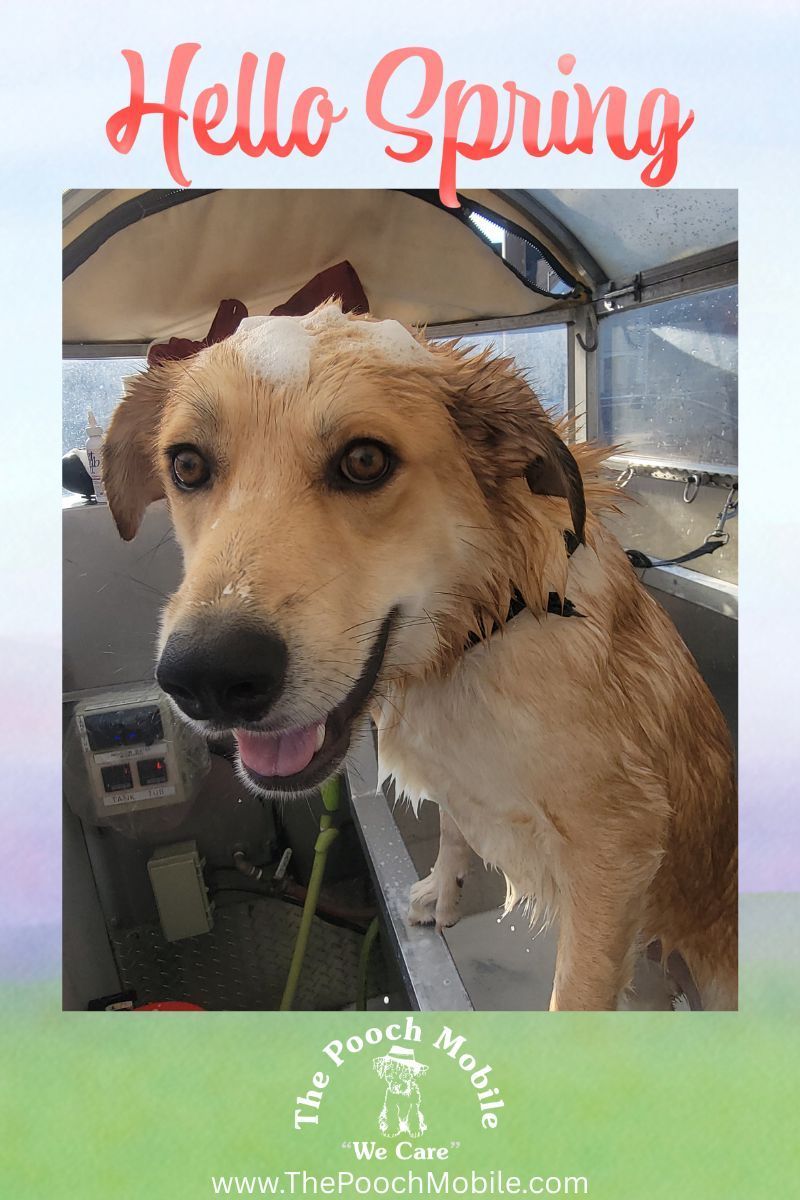
Spring Showers = Muddy Paws: The Benefits of Mobile Dog Washing – How a mobile wash keeps dogs fresh during rainy Spring days. Spring is here! The flowers will be blooming, the days are getting longer, and the rainy season is in full swing. While we love the fresh smell of spring rain, our furry friends often bring in more than just a little moisture—mud, dirt, and who-knows-what else gets tracked into our homes. If your dog is a mud magnet, you’re not alone! Wet weather means messy paws, dirty coats, and that not-so-pleasant “wet dog” smell lingering in your home. That’s where The Pooch Mobile, mobile dog washing comes to the rescue! Why is Spring Such a Messy Season for Dogs? Spring brings unpredictable showers and plenty of mud, making it the season of messy pups. Here’s why: 🐾 More Rain = More Mud: Soft, wet ground is perfect for playtime but terrible for keeping your home clean. 🐾 Shedding Season Begins: Dogs start losing their winter coats, leaving extra fur everywhere. 🐾 Allergens are on the Rise: Pollen, mold, and other irritants can get trapped in your dog’s coat, leading to itchiness. 🐾 Puddle Love: Some dogs just can’t resist jumping into puddles, making bathtime a must. The Benefits of Regular Dog Washing in Spring 🛁 1. Say Goodbye to Muddy Paws Regular washing removes dirt and mud before it gets embedded in your dog’s fur (or your furniture). With a mobile dog wash, you don’t have to struggle with a messy tub at home—we come to you! 🌿 2. Reduce Allergies & Skin Irritation Springtime allergies don’t just affect humans! Pollen, dust, and mold spores cling to your dog’s fur, causing itchy skin and discomfort. A good wash helps remove these irritants and keeps your pup comfortable. 🚿 3. Keep That “Wet Dog Smell” Away There’s nothing worse than that musty, damp dog smell. Regular washing with the right shampoos keeps your dog smelling fresh, even after a walk in the rain. ✂️ 4. Prevent Matting & Tangles Wet, dirty fur can easily become matted, especially in long-haired breeds. Frequent washing and brushing keep their coats smooth, tangle-free, and healthy. 🏡 5. A Cleaner Home for You When your dog stays clean, so does your house! Regular washing helps reduce the amount of dirt, fur, and dander that gets tracked inside, saving you from constant vacuuming. Why Choose a Mobile Dog Wash This Spring? Instead of wrestling with your pup in the bathtub or dealing with the hassle of taking them to a groomer, why not let a professional come to you? A mobile dog wash is the easiest way to keep your pup fresh and clean without the stress. ✅ Convenience: We come to your home, saving you time and effort. ✅ Less Stress for Your Dog: No car rides, loud grooming salons, or long waits. ✅ Personalized Care: One-on-one attention for your pup’s specific needs. Book a Spring Wash for Your Pup Today! Spring should be a time for outdoor fun, not constant cleanup! Keep your furry friend fresh, healthy, and smelling great with regular washes from The Pooch Mobile . 📅 Schedule your mobile dog wash appointment today and say goodbye to muddy paw prints in your home! Call today!
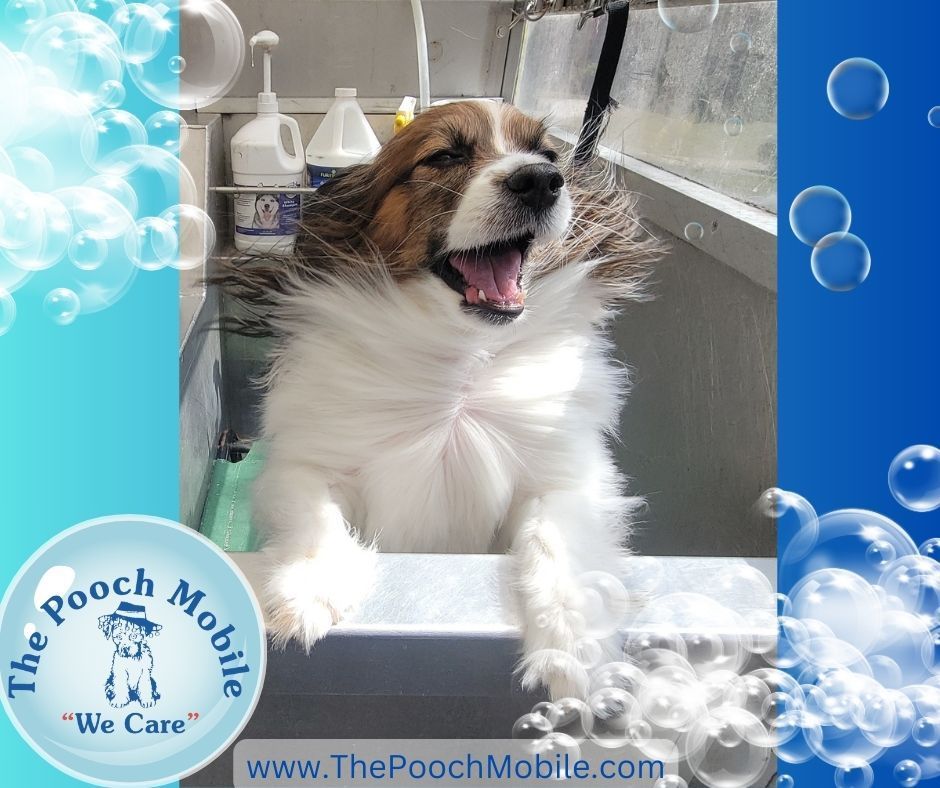
Why Do Dogs Shed More in Spring? As the days grow longer and the temperatures rise, many dogs begin shedding their winter coats in preparation for the warmer months. Shedding can be overwhelming for pet owners, but with proper grooming and care, you can keep your home cleaner and your pup more comfortable. Here are some essential grooming tips to help manage spring shedding effectively. Dogs naturally shed to get rid of their thicker winter coats, making way for lighter fur that helps them stay cool. While some breeds shed year-round, others experience heavy seasonal shedding, known as "blowing coat." Understanding your dog’s shedding pattern can help you prepare for the increased fur around your home. Essential Grooming Tips for Spring Shedding 1. Brush Regularly Frequent brushing is the best way to manage loose fur before it ends up on your furniture and floors. Choose the right brush for your dog's coat type: - Short-haired breeds : Use a rubber curry brush or bristle brush. - Medium-haired breeds : A slicker brush helps remove loose hair and prevent tangles. - Long-haired breeds : A de-shedding tool or undercoat rake is ideal for removing excess fur from the dense undercoat. Brushing at least a few times a week (or daily for heavy shedders) keeps shedding under control and promotes healthy skin and coat. Regular brushing also helps distribute natural oils, keeping your dog’s fur shiny and healthy. 2. Schedule a Professional Grooming Session The Pooch Mobile can provide a thorough de-shedding treatment, including a deep brush-out, blow-dry, and light trimming if necessary. Our mobile dog wash service brings expert grooming to your doorstep, making it convenient and stress-free for both you and your pet. Mobile grooming eliminates the hassle of transportation, reducing anxiety for dogs who dislike car rides. 3. Bathe with a Shed-Control Shampoo Regular baths help loosen and remove excess fur while keeping your dog’s coat fresh. The Pooch Mobile uses top-quality shampoos designed specially for our company. Our mild, shed-control shampoo nourishes the skin and coat, reducing excessive shedding. 4. Maintain a Healthy Diet A well-balanced diet rich in omega-3 and omega-6 fatty acids promotes a healthy coat and reduces excessive shedding. High-quality dog food and supplements, such as fish oil, can help keep your pup’s skin hydrated and coat shiny. Nutrition plays a key role in shedding control, so consult with your vet about the best diet for your dog’s breed and needs. 5. Keep Hydration in Check Proper hydration supports skin health and reduces dryness, which can contribute to excessive shedding. Ensure your dog always has access to fresh water, especially as the weather warms up. A hydrated pup will have healthier skin, reducing flakiness and shedding. 6. Clean Up Smartly While regular grooming helps manage shedding, fur will still find its way into your home. Use a vacuum with a pet-hair attachment and invest in washable covers for furniture and bedding to keep your space fur-free. Grooming your dog in an outdoor or easy-to-clean area can also help minimize mess inside your home. Why Choose a Mobile Dog Grooming Service for Spring Shedding? Our mobile dog wash service is designed to provide professional, stress-free grooming at your convenience. We provide de-shedding treatments , leaving your pup feeling refreshed while minimizing excess fur in your home. Our groomers use industry-leading tools and techniques to efficiently remove loose fur, keeping your dog comfortable. Plus, no more trips to the groomer—we come directly to you! Benefits of Mobile Grooming: - Convenience: No need to travel; we come to your location. - Personalized Service : One-on-one attention for your pup. - Less Stress : No crowded salons or waiting times. - High-Quality Products : We use premium, environmentally friendly shampoos that are specially designed for use in hydrobaths. Ready to tackle spring shedding the easy way? Book an appointment with our mobile grooming team today and give your furry friend the fresh start they deserve! Contact Us Today! The Pooch Mobile | 866-933-5111 | www.ThePoochMobile.com
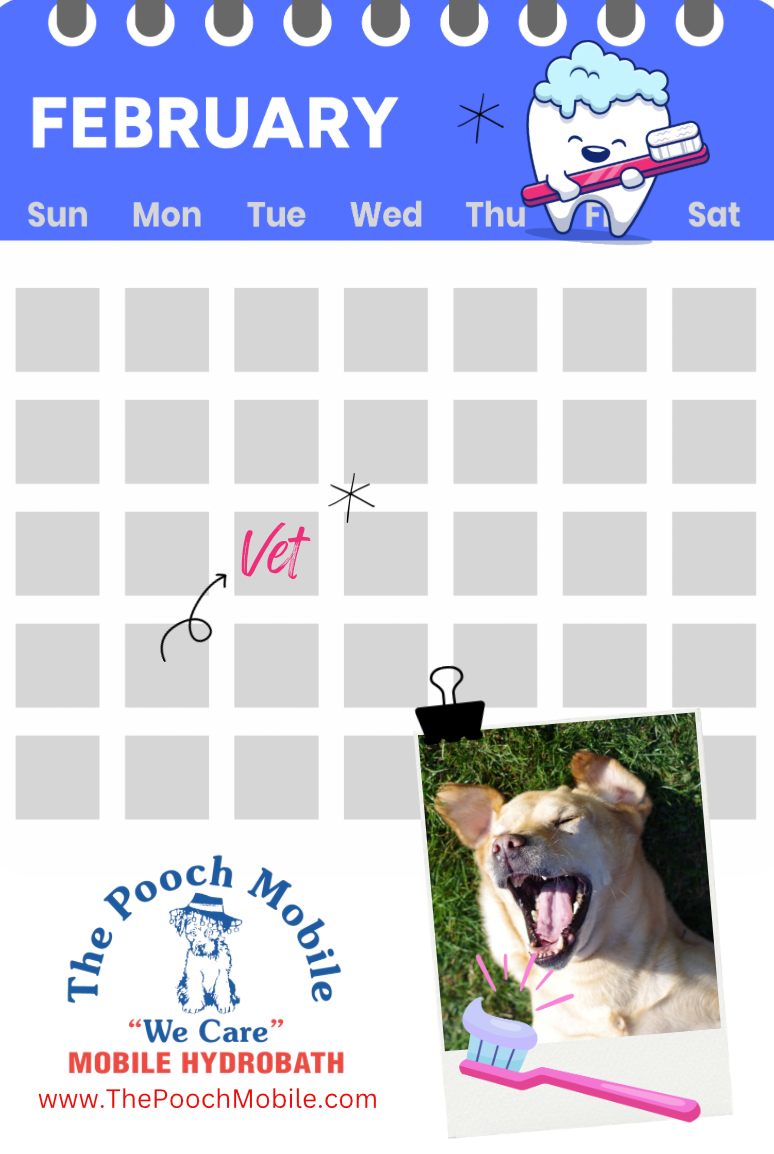
As pet owners, we all want our furry companions to be healthy, happy, and comfortable. While diet, exercise, and regular vet visits are the most common aspects of canine wellness plans, grooming is also an essential, yet often overlooked component. This year, prioritizing your dog’s grooming routine can do more than keep them looking great—it’s a vital part of their overall health and well-being. Why Grooming is More Than Just a Beauty Routine Some dog owners think of grooming as purely cosmetic, but it’s much more than that. Grooming helps maintain your dog’s skin health, coat cleanliness, and even their mental well-being. Regular grooming sessions provide an opportunity to check for health issues, such as lumps, rashes, or unusual bumps, before they escalate into serious problems. Grooming also ensures that parasites like fleas and ticks are identified and addressed promptly. Additionally, the process can be soothing for dogs when done correctly. Many pups find comfort in the gentle brushing, washing, and trimming that come with a thorough grooming session. This not only enhances their physical comfort but also strengthens the bond between you and your pet. The Health Benefits of Regular Grooming 1. Skin and Coat Care Regular brushing removes dirt, dead skin cells, and debris from your dog’s coat, allowing their skin to breathe and reducing the risk of matting. Matting can lead to skin infections and discomfort, especially in breeds with long or curly hair. Grooming also helps distribute natural oils, keeping your dog’s coat shiny and healthy. 2. Nail Trimming Overgrown nails aren’t just unsightly; they can cause pain, affect your dog’s posture, and lead to joint problems over time. Trimming your dog’s nails regularly ensures their comfort and prevents potential injuries caused by snagging or splitting. 3. Ear Cleaning Dogs with floppy ears or those prone to ear infections benefit greatly from regular ear cleaning. Grooming professionals can remove excess wax and debris, reducing the risk of infections that can cause discomfort and hearing issues. 4. Parasite Prevention Grooming is an effective way to detect and prevent flea and tick infestations. Early detection during a grooming session can save your dog from the discomfort and health risks associated with parasites. How to Make Grooming a Wellness Habit in 2025 1. Choose Professional Grooming Services As a professional grooming service provider, The Pooch Mobile can tailor our services to meet your dog’s specific needs. We offer mobile grooming services that bring expert care directly to your doorstep. This convenient option ensures your dog receives the best grooming without the stress of traveling to a salon. 2. Create a Grooming Schedule Set up a regular grooming schedule based on your dog’s breed, coat type, and lifestyle. Dogs with longer coats may need grooming every 4-6 weeks, while short-haired breeds can go a bit longer. Regularity is key to maintaining the health benefits of grooming, and we can help you create an annual schedule that is most convenient for you. 3. Practice At-Home Maintenance Between professional grooming sessions, maintain your dog’s wellness with at-home care. Brush their coat weekly, clean their ears, and check their nails. These small steps can keep your dog looking and feeling great. 4. Monitor Your Dog’s Comfort Pay attention to your dog’s behavior during grooming. If they seem anxious or uncomfortable, work with a professional to find ways to make the process more enjoyable. Positive reinforcement and patience go a long way in helping your dog associate grooming with positive experiences. A Groomed Dog is a Happy Dog Incorporating regular grooming into your dog’s wellness plan ensures their comfort, happiness, and overall health. With our grooming services, keeping up with your dog’s needs has never been easier. By making grooming a priority in 2025, you’re not just giving your dog a shiny coat and trimmed nails—you’re investing in their long-term well-being. So, as you plan your dog’s wellness routine for the year ahead, remember to include grooming as a cornerstone of their care. Your furry friend will thank you with wagging tails, wet-nosed kisses, and a lifetime of unconditional love. To get started, contact us today !

